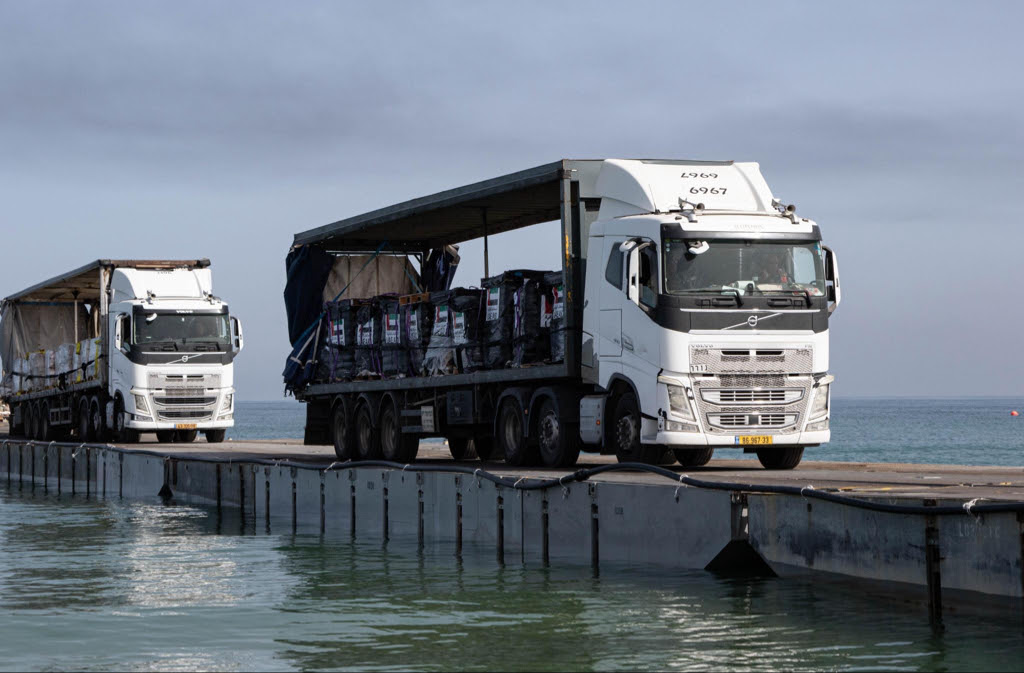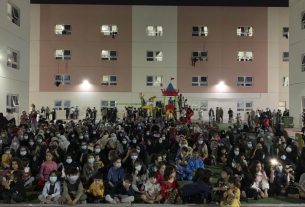Today, via a temporary pier in the Mediterranean Sea, shipments of urgently needed humanitarian assistance have begun arriving in Gaza through the humanitarian maritime corridor. With more than two million people throughout Gaza in dire need of food, shelter, medicine, and other assistance, it is vital that the international donor community maximize all available means to get aid to people in need. In the past two weeks, food and fuel entering Gaza has slowed to dangerously low levels – barely 100 trucks of aid a day entered Gaza, far less than the 600 needed every day to address the threat of Famine. Much more must be done to save lives and alleviate the widespread suffering.
The pier that opened today does not replace or substitute for land crossings into Gaza, every one of which needs to operate at maximum capacity and efficiency. Every moment that a crossing is not open, that trucks are not moving, or where aid cannot safely be distributed, increases the terrible human costs of this conflict.
This corridor is a multinational and combined effort between the United States – led by USAID and the Department of Defense – the Republic of Cyprus, the Government of Israel, the UN, and international donors, including the UAE, the United Kingdom, and the European Union, and will be used to move aid from a range of partner governments to humanitarian organizations ready to facilitate its distribution to Palestinian communities throughout Gaza. Aid that arrived today includes contributions from the U.S., United Arab Emirates, and the United Kingdom.

The establishment of this corridor comes as already catastrophic conditions in Gaza continue to worsen. Today, Gaza’s entire population faces acute food insecurity. Nearly 30 percent of children are severely malnourished. Famine looms for more than half of the population of northern Gaza, and nearly a quarter of southern Gaza.
Through the humanitarian maritime corridor, USAID is providing initial contributions of hundreds of metric tons of life-saving aid, including nutrient rich food to support thousands of Gaza’s most vulnerable children and adults; and critical supplies such as plastic sheeting for shelter, jerry cans to hold clean water, and hygiene kits. This assistance is in addition to thousands of tons of food and other aid being provided by a number of international partners.
I want to recognize the brave humanitarians who are working at personal peril to distribute assistance throughout Gaza, including aid arriving via the maritime corridor. In light of unconscionable attacks on aid workers since the war began, we will continue to press the Israeli government to protect civilians and humanitarian workers, and to facilitate the transport of increasing aid shipments by land and sea, accelerate inspections, open up all avenues of access, and facilitate safe movements of aid convoys within Gaza so humanitarians can get aid directly and effectively to those who need it.
We will also continue to push forcefully for an immediate ceasefire – one that brings the hostages home, enables a surge in humanitarian aid, and protects Israeli and Palestinian civilians – and an end to this conflict.



